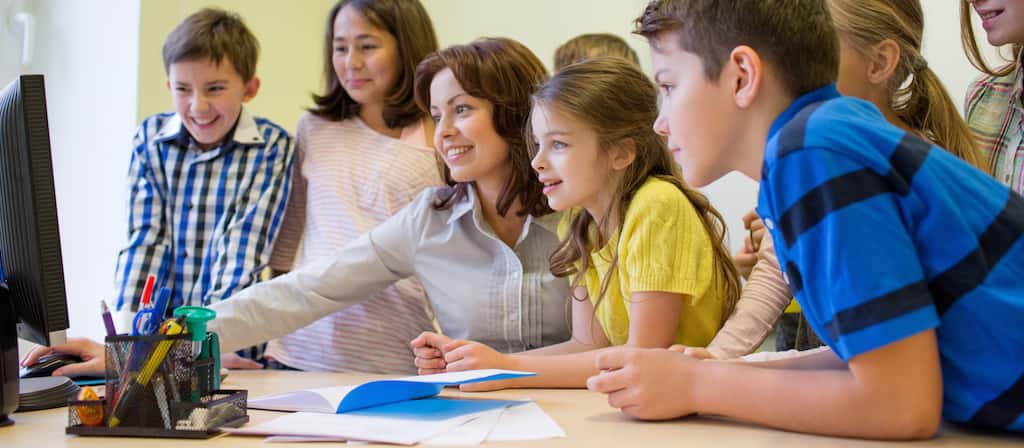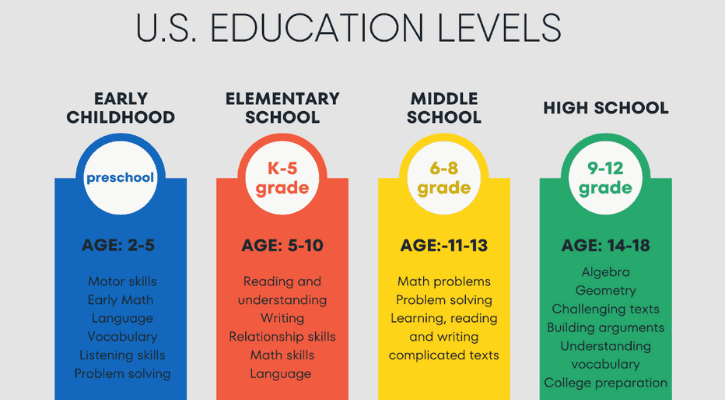5 proven ways a Private School encourages lifelong learning
Discovering the Perks of Independent School for Preschool and Grade Institution: What to Search for
Independent schools can supply distinctive benefits for young students in preschool and elementary school. Parents frequently look for organizations that prioritize smaller class dimensions, fostering customized attention. In addition, an enhanced educational program and extracurricular activities can substantially enrich a youngster's academic experience. Nonetheless, the exploration does not quit there. Understanding the deepness of area participation and the emphasis on character advancement is important in making a notified choice. What specific aspects should moms and dads prioritize to ensure a versatile education?
Smaller Class Sizes and Individualized Focus
Many personal institutions flaunt smaller class sizes, enabling more customized attention for each student. This setting cultivates a more tailored knowing experience, where educators can customize their instruction to satisfy the varied demands of each child. Smaller class dimensions make it possible for educators to recognize pupils' toughness and locations for renovation more easily, helping with targeted support and enriched learning possibilities.
In addition, trainees typically feel much more comfortable joining discussions, asking questions, and engaging with their peers in a close-knit setting. This atmosphere encourages collaboration and constructs self-confidence, advertising a feeling of belonging among students. Teachers can also create more powerful partnerships with their trainees, which can result in enhanced motivation and a greater readiness to take scholastic dangers. Overall, the smaller course dimensions in personal schools play a vital role in boosting the instructional experience, eventually adding to better scholastic end results for young learners.
Enhanced Educational Program and Extracurricular Opportunities
While public institutions typically follow standard educational program, private institutions regularly offer boosted academic programs that deal with a more comprehensive variety of interests and discovering styles. These institutions might offer customized subjects, such as international languages, arts, and advanced STEM training courses, which can enhance students' scholastic experiences. This tailored strategy allows youngsters to explore their enthusiasms and excel in locations that may not be stressed in public education and learning.
In enhancement to the curriculum, independent schools commonly boast a large range of extracurricular possibilities. From sports groups to drama clubs and robotics leagues, these activities promote team effort, creativity, and essential reasoning abilities. The availability of after-school programs makes it possible for trainees to pursue extra passions in an organized atmosphere. On the whole, the enhanced educational program and diverse extracurricular choices in personal colleges contribute to a well-rounded education and learning, preparing pupils not just academically but also socially and emotionally for future challenges.
Stronger Area and Parental Involvement
A strong sense of neighborhood and active parental involvement are hallmarks of independent schools, cultivating an atmosphere where pupils can grow both academically and socially. Secretive educational setups, moms and dads frequently play an important function, taking part in institution events, volunteering, and forming boards that form institution policies. This level of engagement not just boosts the institution experience for trainees but also develops long-term links amongst family members.
Independent schools regularly motivate open communication between instructors and moms and dads, allowing a collective approach to pupil advancement. This partnership permits customized support, guaranteeing that each child's one-of-a-kind requirements are dealt with. Additionally, the common commitment to education and learning fosters a culture of shared respect and cooperation, advertising a favorable institution climate. Eventually, the emphasis on community and adult involvement in exclusive institutions adds greatly to a helpful atmosphere that supports academic achievement and personal development in young learners.
Concentrate On Character Advancement and Values
Character advancement and worths offer as foundational pillars in exclusive school education and learning, shaping trainees right into well-rounded people. Many personal institutions highlight an educational program that integrates honest conversations, social work, and character-building activities. This alternative method fosters crucial attributes such as stability, durability, and empathy.

Access to Advanced Resources and Facilities

Furthermore, personal schools frequently offer extracurricular activities that utilize their innovative sources, such as art studios, music areas, and sports complexes. This access advertises a well-rounded education, encouraging pupils to develop diverse skills and rate of interests.
In addition, smaller sized class sizes typically located in personal schools enable even more individualized instruction, making it possible for instructors to Grade School make use of these sources successfully. Students profit from improved knowing opportunities, leading to a richer scholastic experience. Generally, accessibility to sophisticated sources and centers plays a necessary function in shaping the instructional journey in private colleges, offering advantages that can markedly influence trainee end results
Frequently Asked Concerns
Exactly How Do Personal Institutions Take Care Of Unique Education And Learning Needs?
Personal colleges frequently attend to unique education and learning needs through individualized education and learning strategies, smaller sized course dimensions, and specialized team. They may provide tailored assistance, resources, and programs to suit varied learning requirements, making sure all pupils obtain ideal education.
What Is the Average Tuition Cost for Independent Schools?
The ordinary tuition price for independent schools differs significantly, normally varying from $5,000 to $30,000 every year, depending upon aspects like place, establishment online reputation, and provided programs, with some elite institutions exceeding this range considerably. - Grade School
Are Independent School Educators Qualified and Qualified?
Independent school teachers frequently hold accreditations and progressed levels, but requirements can vary by establishment. Several independent schools prioritize working with certified educators, guaranteeing they possess the abilities needed to offer quality education and learning to their trainees.
How Do Independent Schools Attend To Bullying and Social Issues?
Independent schools typically implement rigorous anti-bullying plans, encourage open interaction, and promote a supportive setting. They may give counseling services and dispute resolution programs to deal with social concerns efficiently, advertising a favorable institution society.
What Is the Regular Course Schedule and School Hours?
Commonly, independent schools run from 8 AM to 3 PM, with variations depending on the establishment. Class routines commonly include core subjects in the early morning and enrichment activities or electives in the mid-day, fostering a versatile education.
Private schools can supply distinctive advantages for young students in preschool and grade college. While public institutions typically follow standard educational program, personal schools regularly provide boosted academic programs that cater to a more comprehensive variety of interests and discovering styles. In private academic settings, moms and dads frequently play an integral duty, participating in college events, offering, and forming boards that shape institution plans. Character development and values offer as foundational columns in private institution education and learning, shaping pupils into versatile people. Private colleges frequently prioritize small class dimensions, permitting educators to grow individual relationships with students.